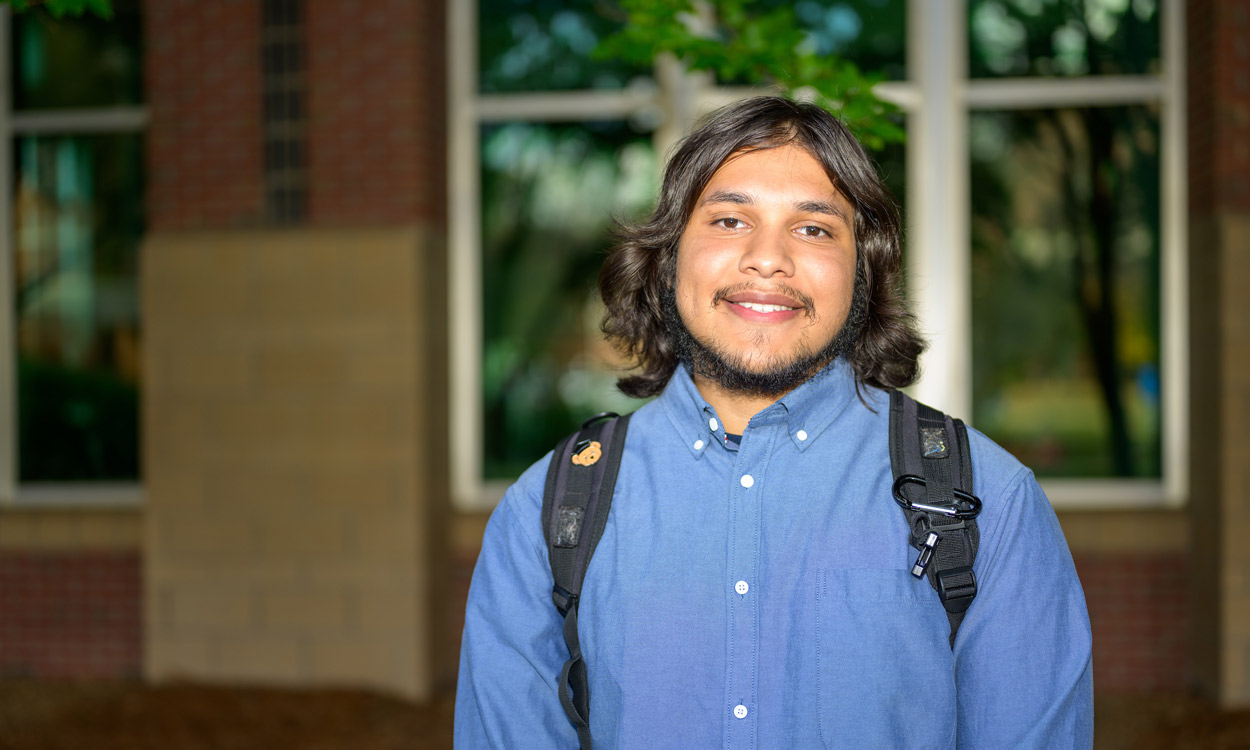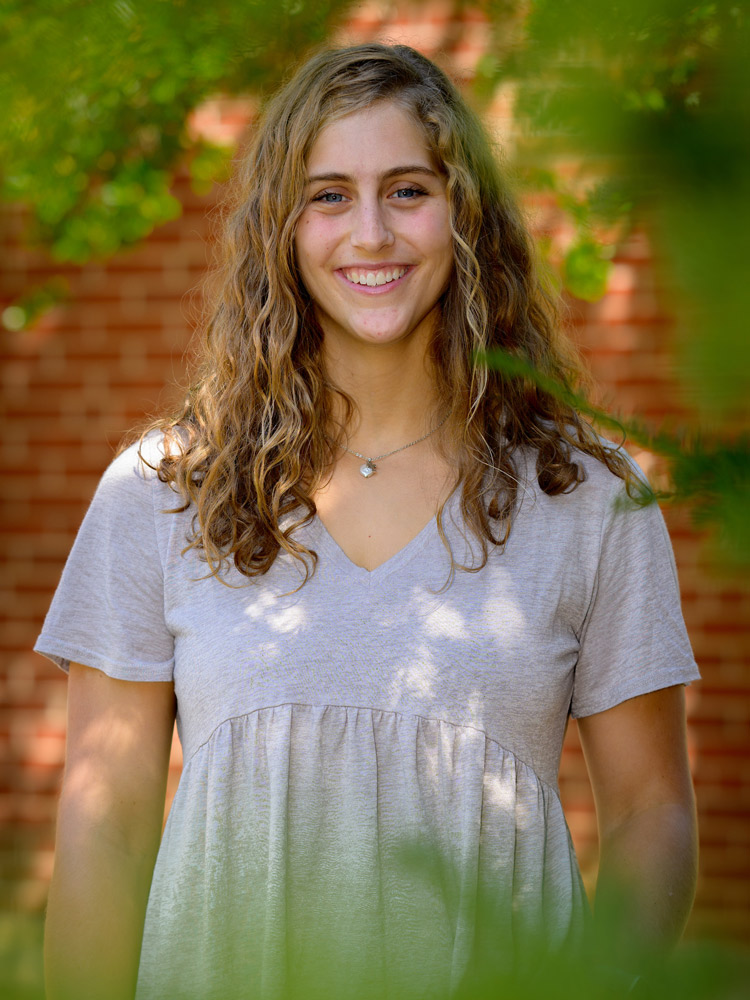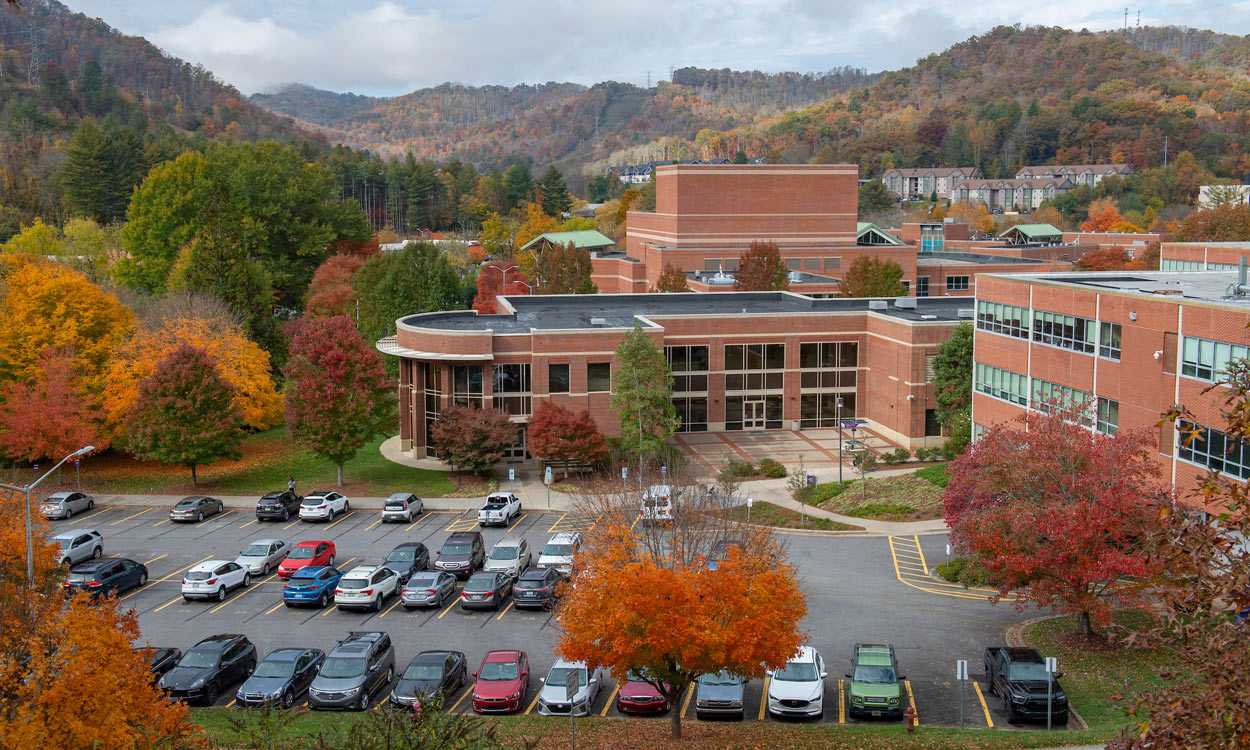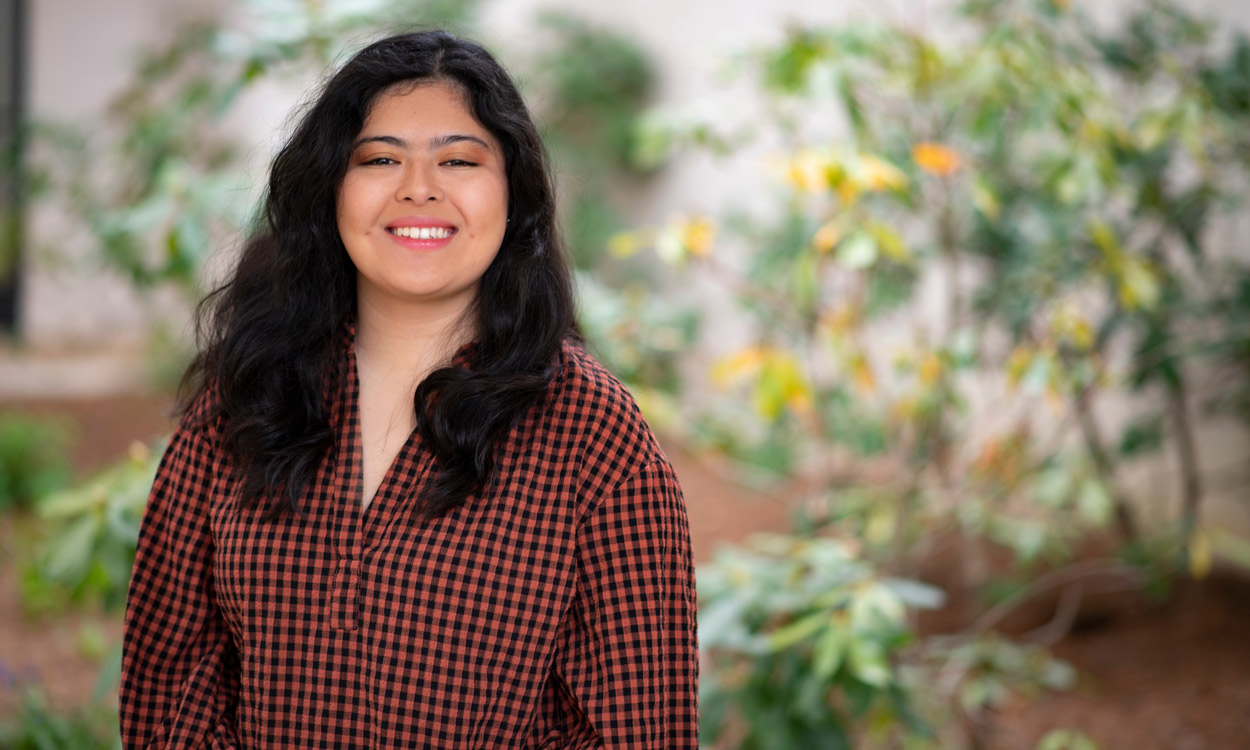Cultural immersion: WCU students return from year-long study abroad trips

Marcus Ibarra
By Julia Duvall
Western Carolina University students Elliott Kerns and Marcus Ibarra recently had the opportunity of a lifetime to study overseas as recipients of the David L. Boren Scholarship.
The scholarship is named for former U.S. senator David L. Boren, who helped develop the program and is awarded by the National Security Education Program.
Kerns, a junior, is majoring in international studies and history while Ibarra, also a junior, is majoring in political science and philosophy.
Both were chosen as recipients of the scholarship in 2022 and recently returned from their year-long trips – Kerns from Jordan and Ibarra from Kyrgyzstan.
“This scholarship gave me a full academic year of Arabic study abroad,” Kerns said. “I was able to live with close family friends and attend two language centers where I studied Arabic for about 22 hours per week. I was able to experience the culture and try new food; it was wonderful.”
Kerns began studying Arabic when she was 12 years old.
“Family friends offered to teach me and I fell in love with the language,” Kerns said. “It became my passion that I wanted to pursue. I have wanted to visit Jordan since I started studying the Arabic language, so this was a dream come true for me.”
Kerns lived with a host family for a week before being able to stay with her family friends. She said building community was tough at first, but everything fell into place for her.
“I'm so thankful it eventually came together and just being immersed in the culture helped so much,” Kerns said. “I’ve been in Western North Carolina my whole life, so the opportunities have not been there to use the language. This gave me the chance to engage with other Arabic speakers.”

Elliott Kerns
Kerns said another highlight of her time in Jordan was joining an ultimate frisbee team.
“In addition to being on the team, I had the opportunity to participate in the first all-women’s Jordanian Ultimate Frisbee Cup,” Kerns said. “That was a lot of fun and I formed lifelong friendships.”
Asked what the hardest part of transitioning to life back in the states was, Kerns said it was trying to process her time abroad and keeping the memories fresh in her mind.
“I'm thankful because overall it has been a good transition, but there are definitely still times when I am missing being there,” she said. “It's hard to come back and try to balance knowing that I had a life and had established myself in a sense in Jordan, and to now come back and just cherish the time I had there. I think jumping right back into my life before studying abroad has been helpful. I think processing that time abroad comes in waves. I'm very hopeful that I will get to go back because of connections formed.”
Kerns' future goals include continuing to pursue Arabic and improve her proficiency in the language through courses and another trip abroad and honor her scholarship requirements by working for the federal government for one year.
“I just returned from Washington where I participated in a federal career fair,” Kerns said. “So, the ball is rolling for my post-graduation government career. I gained a little clarity after speaking with people at this fair and I'm hoping to get my foot in the door and be able to continue using Arabic in the workplace.”
Asked what her biggest takeaway was from her time in Jordan, Kerns said it was the hospitality and importance of religion in the culture.
“I think we have a stereotype about the Middle East,” she said. “I definitely did, but upon going and living in the culture, that stereotype is just not true. Jordanians are so hospitable and welcoming. I am really thankful for that time abroad.”
More than 6,400 miles away in Kyrgyzstan, Ibarra used his scholarship to study Russian and learn more about the culture and country.
“I really enjoyed it, it was a totally different experience being across the world like that,” Ibarra said. “I learned a lot and stayed busy in classes every day and after that we had peer tutoring or some time to explore the city and immerse ourselves in the culture. I did a lot of studying and a lot of exploring.”
Ibarra improved on speaking in Russian but said he has a few more years of studying before he will feel confident in his ability to speak the language fluently.
“I really enjoy the sound of Russian phonetically,” Ibarra said. “I wanted to learn a new language and I was falling down the rabbit hole of philosophy. I got into a lot of Russian philosophers, but that kind of just took off from just enjoying learning it. I think it has cool grammatical structure. I like to listen to it and it's just nice to be able to talk to other people.
It's a hard language to learn, but I improved during my time in Kyrgyzstan.”
Ibarra also had some time for himself to explore and do some self-reflection.
“I met a lot of great people and learned a lot about myself,” he said. “This trip allowed for a good amount of self-reflection and spending time in rural areas of the villages.”
With an 11-hour time difference, it took Ibarra some time to adjust to living in Kyrgyzstan.
“For the whole first week, I really struggled with the time difference, but eventually adjusted,” Ibarra said. “I miss it; I miss a lot of the food from there. Just homemade food and seeing people, it takes some adjusting getting back home after being away for a year.”
During his time in Kyrgyzstan, Ibarra volunteered at the U.S. Embassy teaching English to members of the speaking club.
“That was a great opportunity to not only teach the group some English, but work on my Russian,” Ibarra said.
As for his post-graduation plans, Ibarra wants to continue learning Russian, do his year of service in the government and get his master’s degree in philosophy.
“I am very proud of both Elliott and Marcus for taking advantage of such a great opportunity and successfully completing their study abroad programs” said Ingrid Bego, WCU's director of International Studies. “They came back home to Western equipped with improved language skills, new friendships and networking communities, and a much broader worldview. What more can we hope for our students?”
Bego hopes that the experience Kerns and Ibarra had will inspire other WCU students to apply for the Boren Scholarship and other awards.

